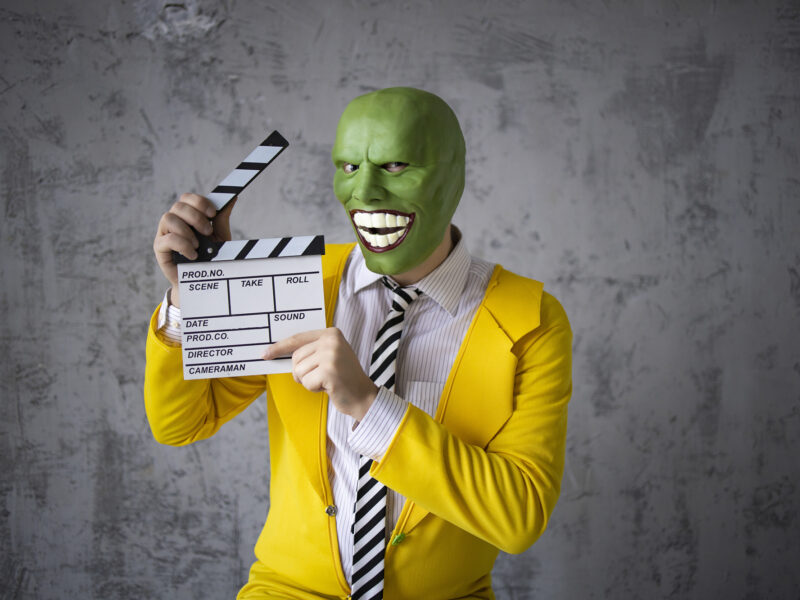


KITCHENER – The anti-mask group ‘Hugs Over Masks’ is using the 1994 Jim Carrey vehicle The Mask as an example of what can go wrong when people start wearing masks.
“This documentary shows what happens when we listen to the so-called ‘experts,’” said Hugs over Masks spokesperson Vladislav Sovolad during a protest in Victoria Park. “You put one of these on your face and before you know it your face turns green, your teeth get big and in certain amorous situations your tongue gets so big, it unfurls onto the table.”
In the fictional film directed by Charles Russell, Carrey plays a mild-mannered bank employee named Stanley Ipkiss who finds a wooden mask that transforms him into an uninhibited cartoon character with a lust for life and seemingly unlimited powers.
“The kind of person that a mask turns you into is not the kind of person we want in Canada,” said Chris Saccoccia, another member of Hugs Over Masks. “It turns you into someone who is completely out of control and says ‘smokin!’ all the time. And smoking is very unhealthy and bad for public health.” Saccoccia went on to give a presentation involving multiple bristol boards with images of the Batman villain Bane, the Nintendo game Majora’s Mask and the Sailor Moon character Tuxedo Mask.
For some, the anti-mask message Hugs Over Masks was trying to convey has had the opposite effect. “Hey, if I get to date Cameron Diaz, dance at the Coco Bongo night club and defuse a bomb, maybe I should wear a mask,” said the previously mask-skeptical Joseph Crocker of Newmarket. While Ontario Premier Doug Ford strongly opposed Hugs Over Masks discouraging wearing masks in public places, he did concede that Son of the Mask, the 2005 sequel to The Mask starring Jamie Kennedy, was “a bad movie that no one liked.”

